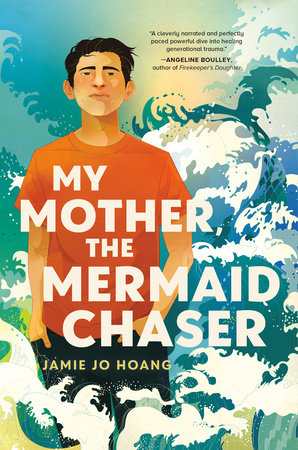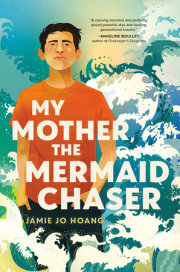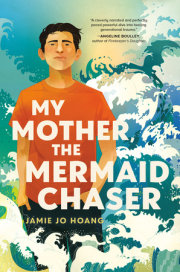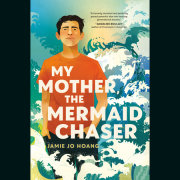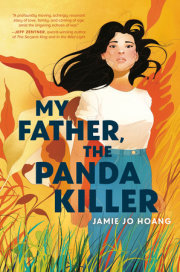Chapter 1Paul
I’ve never loved my parents. My mother left when I was four—no chance for love. And my dad, well, he’s not real lovable. To be clear, I don’t
hate him. But love? No. We’re just not that kind of family. No one in my family says “I love you.” Correction. No one in my family
used to say “I love you.”
Last week, my sister, Jane, and I were watching
Just Friends, a rom-com about a successful guy who returns home to his small town and finds that all his awkward tendencies have returned with him. Because we own the DVD, we’ve seen this movie at least six times, yet my sister laughed just as hard this time as she did when we first saw it. Anyway, the film ended, and Jane turned to me, eyes watering with laughter, and said, “I love you, Paul. Thanks for watching this with me.”
At first, I thought I’d heard her wrong, but then this silence hung in the air, confirming that those were indeed the words she’d used. For my part, I avoided eye contact while staring at the rolling credits as though I really cared about who Jock #1 and Jock #2 were. Jane got up, grabbed my popcorn bowl, and went to the kitchen. She appeared to be acting totally normal; she seemed not to be sick in any way; she simply went about cleaning up without acknowledging this major bomb she’d just dropped in my lap. Then, yesterday, before dinner, Jane walked into the house exclaiming, “Oh my god! I love you so much! Thanks for making bún riêu with Mợ Bích. You know it’s my favorite.” Yes, I do know it’s her favorite. I also know that our aunt, Mợ Bích, makes this meal every time Jane comes home for dinner, so it’s not that special. Once is a fluke; twice is deliberate.
Not that that kept me from ignoring it a second time. Now, though, Jane is making it impossible. We’re at Walmart, preparing for our trip to Vietnam. Jane came with a list. I conquered said list while she spent thirty minutes getting her eyes examined for new prescription lenses. She’s checking my work when out of her mouth comes “Damn, Paul, I love you for being so efficient. Let’s hit up the toy aisle, though, I forgot to add some stuffed animals.”
“Why do you keep saying that?” The words shoot at her far more aggressively than I intend, but I can’t help it. “Are you dying?”
“What? No. Why would you think that?”
“You know why.”
“Because I’m saying ‘I love you’? Does it make you uncomfortable?”
I raise an eyebrow and wait. She knows it does.
“My therapist says we need to lean into the things that make us uncomfortable. It’s only weird because Dad never says it.”
Neither did you until now, I think, but I keep that to myself. Obvious things don’t need to be said. Especially when she’s now just dropped another casual bomb. “Your
therapist?”
“Yeah. I’ve been talking to someone. Processing the trauma and stuff.” I don’t know what to say. We don’t do therapy; we suffer, laugh about suffering, and suffer some more. Jane fills the silence without skipping a beat. “I can’t believe these things are only five bucks. Bears or dinosaurs? Should we get all the same, so no one is fighting over them?”
Jane looks at me. I remember I still haven’t spoken. “Yeah, probably. Get the bears. They’re softer,” I say. My sister and I are opposites. She’s big-picture, and I’m all about the small things. Like my favorite sound is the fizzing noise water makes when it streams from a faucet. Jane, on the other hand, looks at water and wants to know how it fell from the sky, rolled down a mountain, got pushed through pipes, and ended up here.
When my dad was losing his mind and beating my sister, I used to sit in the bathroom with the faucet on and concentrate on the stream of water flowing down the sink. It became the white noise I needed to muffle what was happening in the house. Because of this, it’s the only time I ever feel truly calm. At some point, I realized that silence eased the tension way faster than shouting or crying. When I was young, being quiet was my only power. I clung to it so hard that now I have to remind myself to speak aloud the thoughts inside my head.
When my dad was angry, any words that spilled from my mouth were wrong. “I’m sorry” made him hit me harder. “Stop” made him hit me longer. “Okay” was met with a question, “Okay, what?” that I never had an answer to, so the punishment would continue. Then I learned to stop answering. In science class, I discovered that fires require oxygen, so instead of speaking I held my breath. And it worked. My silence cut the beating time in half.
I look at Jane and it dawns on me that she’s been unusually quiet. Typically, she asks me all kinds of questions about school, my day, our dad, food, my friends, and whatever she can think of. While in law school, she would question me the way a prosecutor might cross-examine a criminal. What started as practice is now a habit. Except today, she hasn’t asked anything. No
What did you eat? Why didn’t you eat an apple? I better not find them rotting in the fridge later. “What’s up with you?” I ask.
“Huh?” She startles, looking at me like she’s just remembering that I came along. “What?”
“Why are you all sulky and quiet?”
“Oh. I was just thinking about all the stuff I need to get. I don’t want to forget anything essential.”
Lies. “You can tell me now, or I can ask you the same question over a period of twenty-two hours while you’re confined to an airplane seat beside me. Let me guess. You got dumped?”
Jane avoids eye contact, pretending to be interested in the bleach-free laundry detergent in her hands. After a moment, she says, “Who has time for a boyfriend? All I do is work and worry about you.”
“Ah, so you dumped him,” I try. Jane has had precisely one boyfriend (that I know of), and he ended up being a dud.
She ignores me. “I bet Bác Loan would love this stuff.” She puts powdered detergent in the basket, grabs some stain-remover pens, and tosses those in the cart too. We continue on through the bedding and bathroom departments, and she adds a shower curtain. The candy aisle is where she loses all self-control. Any chocolate bag with a sale sticker on it ends up in our cart. We hit the jackpot. Peanut M&M’s are on clearance. While she empties the bin, I walk around the corner.
I wander down an aisle bursting with furry colors. There’s something about seeing so much fluff that makes me want to pile them all in a large heap and jump on top. I resist the impulse. Near the end of the aisle, a brown bear in a green Scout’s vest stops me. His left paw holds a shovel while the other hangs at his side. Smokey Bear is a California icon. I pull him down and feel the soft fur. This forest ranger bear is on billboards throughout the national parks and highways. Next to the bear I remember the phrase “Only YOU Can Prevent Forest Fires.”
A memory pops into my head.
Our family was together in the car. Dad and Mom were in the front, Jane and me in the rear. I kept sliding because the towel we had laid down to cover the giant tear in the seat was slick against the cracked and tattered leather. I had no idea where we were, but outside my window, lots and lots of giant red trees swooshed by. I remember the forest looking like it was on fire without any flames. And the trees were so tall that I couldn’t see where their tops met the sky.
In the front, my parents argued. My dad yelled, and my mother disagreed. Tears fell down her cheeks, but her voice rarely cracked. Beside me, teen Jane cradled me in her arms. In a calm tone, she told me a story about three little bears living in this forest. Her voice was clear and steady, excited even as she whispered about this family whose biggest concern was their porridge’s temperature. I was quiet. I didn’t want to be in this car. I didn’t want to be in this family, and my dad was driving so erratically that I was sure we were all going to die. The urge to speak tugged at my throat, but the sentences in my head were nothing but blank spaces.
Jane’s voice contrasted with the yelling, but the two meld together as distinctly and clearly as if the car ride had been yesterday. My parents argued in Vietnamese. My sister told me the “Three Little Bears” story in English.
“If you don’t know things, you should keep your mouth shut,” my dad barked.
“That was not a good deal for us. If you had let me negotiate, I would’ve gotten a better deal. Now we’re paying for a year at this high price. You listen to him because he’s white, and he rips us off because he thinks we’re stupid.”
“Shut up. You know nothing, but you keep talking.”
Shut up is benign in English, but in Vietnamese, it’s more akin to a booming
Silence!“Once upon a time, in a redwood forest full of trees as wide and tall as these . . .” Jane pointed to the outside as though seeing might override hearing what was happening in the front seat. “In this forest, there lived three bears. A momma bear, a papa bear, and a baby bear. The momma bear, being the momma, made their porridge, and then, for some reason, they had to leave the house.” I knew this story pretty well, and even though Jane was butchering it, I didn’t correct her. In hindsight, I think she hoped I might interject and start a fun debate that would keep my attention glued to our fantasy world. But I wanted to hear the fight. I wanted to know why my mother was about to leave us. Okay, I probably didn’t think that because I couldn’t have known she was going to, but I certainly think about it now. “This golden-haired girl broke into the house because people have no respect for bears. And she ate all three of their bowls of bear porridge!”
“I’m not dumb.” My mother’s voice was firm. I wonder if she meant to say this more to herself than to my dad. I’ve been told my whole life that my mother was a wallflower, but in this memory, I know that can’t be true. In this memory, she is as hot as the trees outside. Her anger is as red as the burning leaves. Arguments in our family usually contain few words. Yet I remember their voices filling the air, making it thick with suffocating fumes.
Suddenly, the car shifted gears and sped up, weaving between and around slower vehicles. SUVs full of camping gear and perfect families honked at us.
No one spoke.
Vroom.Jane’s hand gripped my shoulder—too tight, scarily tight.
Finally, my mom broke the silence. Her tone was even, unafraid. Resolved, maybe? “Stop the car. Do you want to die? Die if you want to, but don’t take us with you.”
These back-to-back commands were sharp. My mother came to life, which was both exhilarating and utterly frightening. How could she not see that talking to my dad like this would only egg him on? Maybe she did. Maybe that was the point.
Somehow, all the other tourists abandoned us on the open road. Our car zoomed forward in a blur. I gripped my elbows, bracing myself for the pain of being mangled inside should be crunched not scrunched scrunched metal.
Then a voice. Loud enough to be heard but low enough to be humble. “Ba, stop.” It was my sister’s gentle, even tone that caused the car to slow. The road ahead was curved with bendy twists meant to be taken at a speed far below what we were going. As the car slowed, I saw California’s iconic mascot—Smokey Bear. The way the bear pointed, it was like he was singling out my dad and telling him to stop. When I was little, I believed Smokey Bear stopped my dad that day, but now I know it was Jane. She had a knack for calming situations fraught with tension; incidents sparked by anger that had nothing to do with us. My sister and I were nothing but collateral damage. The more our parents fought, the harder we clung to each other.
Copyright © 2025 by Jamie Jo Hoang. All rights reserved. No part of this excerpt may be reproduced or reprinted without permission in writing from the publisher.

